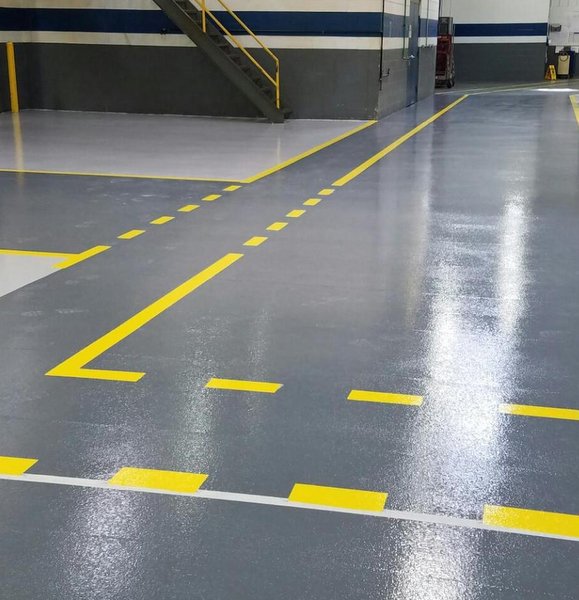Overview:
Epoxy coating is a versatile surface treatment method involving the application of epoxy resin-based coatings onto substrates. This protective layer offers exceptional durability, chemical resistance, adhesion, and aesthetic appeal across diverse industries, safeguarding surfaces from wear, corrosion, and environmental degradation.
Epoxy Coating Process:
Surface Preparation:
- Surface Cleaning: Thorough cleaning to eliminate dirt, grease, and contaminants, ensuring optimal adhesion of the epoxy coating.
- Surface Profiling: Abrasive methods like sandblasting or grinding create surface texture, enhancing coating adhesion.
Epoxy Application:
- Epoxy Formulation: Epoxy coatings come in various formulations tailored for specific applications, offering options for solvent-based or water-based coatings.
- Application Techniques: Applied through spraying, brushing, or roller coating methods to achieve desired thickness and coverage.
Curing and Bonding:
- Curing Process: Epoxy coatings undergo curing, forming a strong and durable bond with the substrate, often achieved through chemical reactions or heat application.
- Adhesion Strength: Epoxy coatings exhibit excellent adhesion to substrates like metals, concrete, and composites, ensuring long-term performance.
Varieties and Applications:
Types of Epoxy Coatings:
- High Build Coatings: Designed for thicker applications, providing enhanced protection and filling capabilities for surface imperfections.
- Epoxy Primers: Used as primers to improve adhesion and corrosion resistance, applied before topcoat applications.
- Chemical-Resistant Coatings: Offer resistance to chemicals, acids, and solvents, suitable for industrial settings.
Diverse Applications:
- Flooring Systems: Epoxy coatings are widely used in industrial floors, warehouses, and commercial spaces due to their durability, abrasion resistance, and easy maintenance.
- Corrosion Protection: Applied on metal surfaces to prevent corrosion in various industries like marine, automotive, and oil & gas.
- Decorative Finishes: Utilized in decorative applications for floors, countertops, and architectural surfaces due to their customizable appearance and seamless finishes.
Precision and Quality Assurance:
Thickness and Durability:
- Controlled Thickness: Precisely controlled coating thickness, commonly ranging from tens to hundreds of micrometers (μm).
- Adherence to Standards: Compliance with ASTM and NACE standards ensuring specified coating thickness and performance.
Quality Control:
- Visual Inspection: Ensuring uniformity, absence of defects, and proper coverage of the epoxy coating.
- Adhesion Testing: Employing pull-off tests or cross-hatch adhesion tests to assess the bonding strength between the coating and substrate.
Epoxy Coating stands as a robust and versatile surface treatment offering exceptional protection and aesthetics across a myriad of applications. Its ability to provide durable and chemically resistant surfaces, along with stringent quality control measures, ensures its widespread use in various industries.

